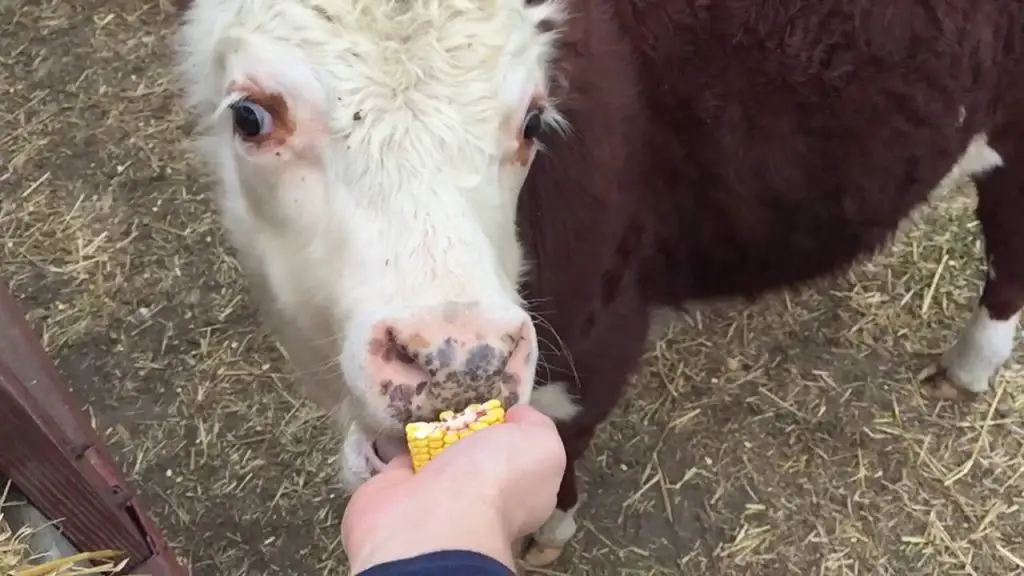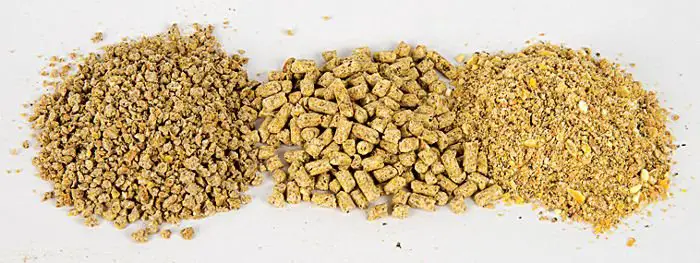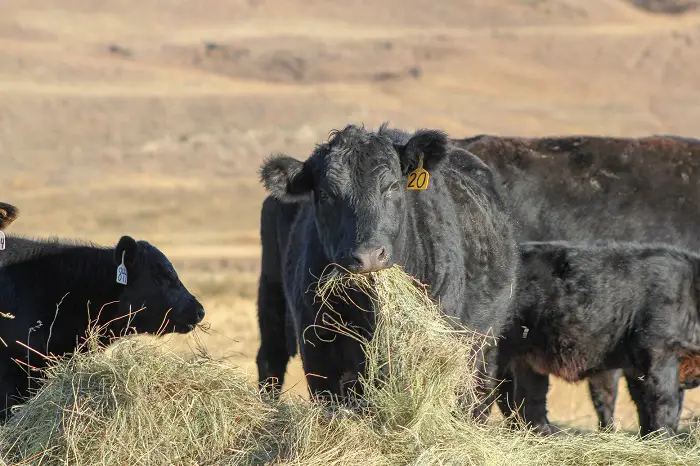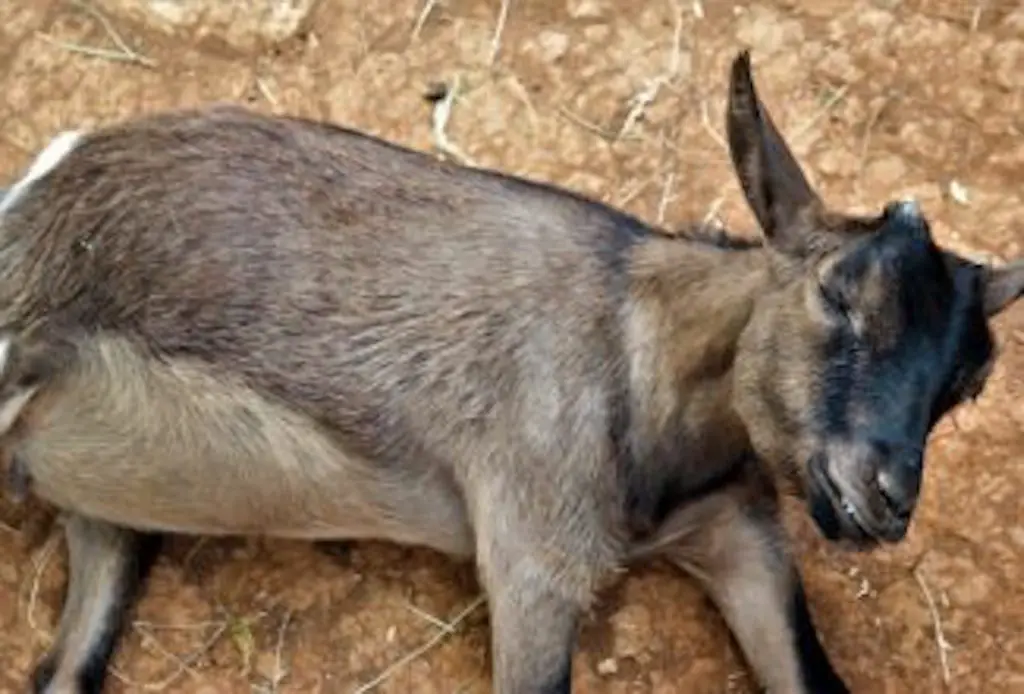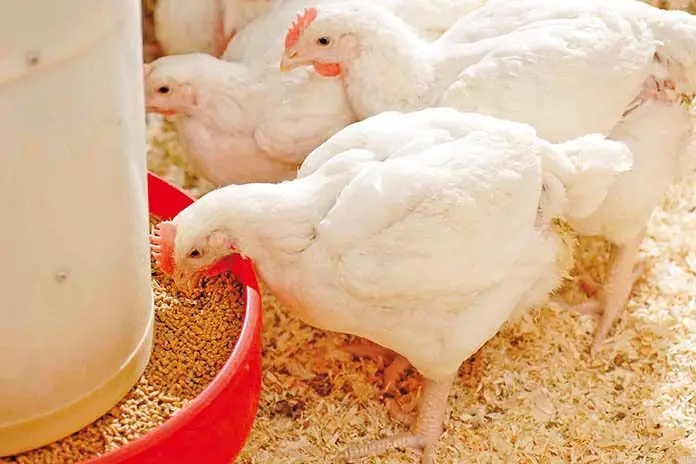Cows are known to eat corn however, are the cobs safe for them to eat? If you have often thought about this or are actually thinking about this, you have come to the right place. In this article we discuss whether cows can eat corn cobs and what the possible effects might be.
Contents
Can Cows Eat Corn Cobs
Yes, cows can eat corn cobs but in moderate amounts. This is because when consumed in excess, they can cause digestive problems to your cattle. It is advisable that corn cobs be fed to adult cows and not calves. This is because there is a risk that they may choke on them.
Nutrition And Health Benefits Of Corn Cobs
Contain Roughage
One of the health benefits of corn cobs to cows is that they are a good source of roughage which is needed for digestion. When cows consume moderate amounts of corn cobs, there gain roughage which helps to promote good gut health. Roughage also makes it easier for cows to pass out their stools.
Contain Protein
Corn cobs are a good source of protein which helps to build muscles in a cow’s body. Protein also helps to reduce muscle loss and helps to maintain healthy weight in these animals. So if you want your cows to gain a bit of some protein you can always give them moderate amounts of corn cubs.
Improve Milk Production
Cows that consume moderate amounts of corn cobs usually produce more milk. This is because corn cobs contain certain nutrients that can help increase milk production in these animals.
How To Feed Corn Cobs To Cows
If you are planning on feeding corn cobs to your cows, the best thing you can do is to grind them up. This helps to ensure that your cows do not choke on them whilst eating. You can also mix the corn cobs into their regular feed so that they do not have a hard time adjusting to the taste. Corn cobs do not contain all the vitamins and minerals needed by a cow in order to fully develop. Therefore, they can never be used as a substitute for livestock feed.
Possible Side Effects Of Corn Cobs To Cows
As previously stated in this article, corn cobs should be offered in moderate quantities and failure to do so may result in serious health problems. Below we look at the side effects of feeding your cows excessive amounts of corn cobs.
Bloat
One of side effects that your cow may face after eating excessive amounts of corn cobs is bloat. This is a serious problem and it happens when the cow is unable to pass out gas. Their digestive system is designed to digest plant matter and as a result corn cobs may take longer to be digested. If your cow consumes excessive amounts of corn cobs, the digestive process will be slowed down, making it harder for your cow to pass gas. This problem can kill cows when not treated. Therefore, it is important to offer cows moderate amounts in order to prevent bloat.
Liver Abscess
If your cow consumes too many corn cobs it may develop liver abscess. This condition is very hard to treat in cattle and can even result in death.
Are Corn Cobs Good For Cattle?
Yes, corn cobs are good for cattle when offered in moderate amounts. This is because they are a good source of protein and roughage. They also have the potential of increasing milk production in cows. It is worth noting that corn cobs do not meet the energy requirements of cattle. Therefore, they should never be used as a substitute for their regular feed.
Can Cows Eat Raw Corn Cobs?
Yes, cows can eat raw corn cobs in moderate amounts. Raw corn cobs are a good source of roughage. It is however, worth noting that they should never be offered to calves. This is because there is a risk that they will choke on them.
Can Cows Eat Husks?
Yes, cows can eat husks they are a good source of protein however, they do not exactly meet the energy requirements of these animals. Husks should only be used as a supplementary feed for cattle.
Can Cows Eat Broccoli?
Yes, cows can eat broccoli but in moderate amounts. This is because it has a high water content and can cause diarrhea when consumed in excess. Broccoli is a good source of fiber when offered in moderate amounts and it can help to promote good gut health. It is also rich in vitamin C which helps to boost the immune system. Vitamin C is responsible for the build-up of antibodies that can help to fight and resist certain diseases in cattle. Furthermore, it contains vitamin A that helps in promoting good eyesight. Although broccoli contains many vitamins and minerals, it does not meet the energy requirements of cattle therefore, it can never be used as a substitute for their feed.
Can Cows Eat Cucumber?
Yes, cows can eat cucumber and it is a good source of roughage that helps to make the digestion process much easier. Cucumbers contain a high water content which can help cows to stay hydrated. Furthermore, it is a good source of vitamins A, C and K that helps to boost the immune system. When giving cucumbers to your cattle make sure that you offer them as treats or supplements. This is because they do not meet the dietary needs of these animals. Furthermore, they can cause diarrhea when consumed in excessive amounts.
Can Cows Eat Celery?
Yes, cows can eat celery but in moderate amounts. This is because it can cause digestive problems when taken in excess. Celery is a good source of fiber as well as vitamins C and A. It also helps cows to stay hydrates especially during the summer.
Conclusion
Cows can eat corn cobs but in moderate amounts. They are a good source of protein and roughage. It is worth remembering that feeding excessive amounts of corn cobs to your cattle may result in bloat.
